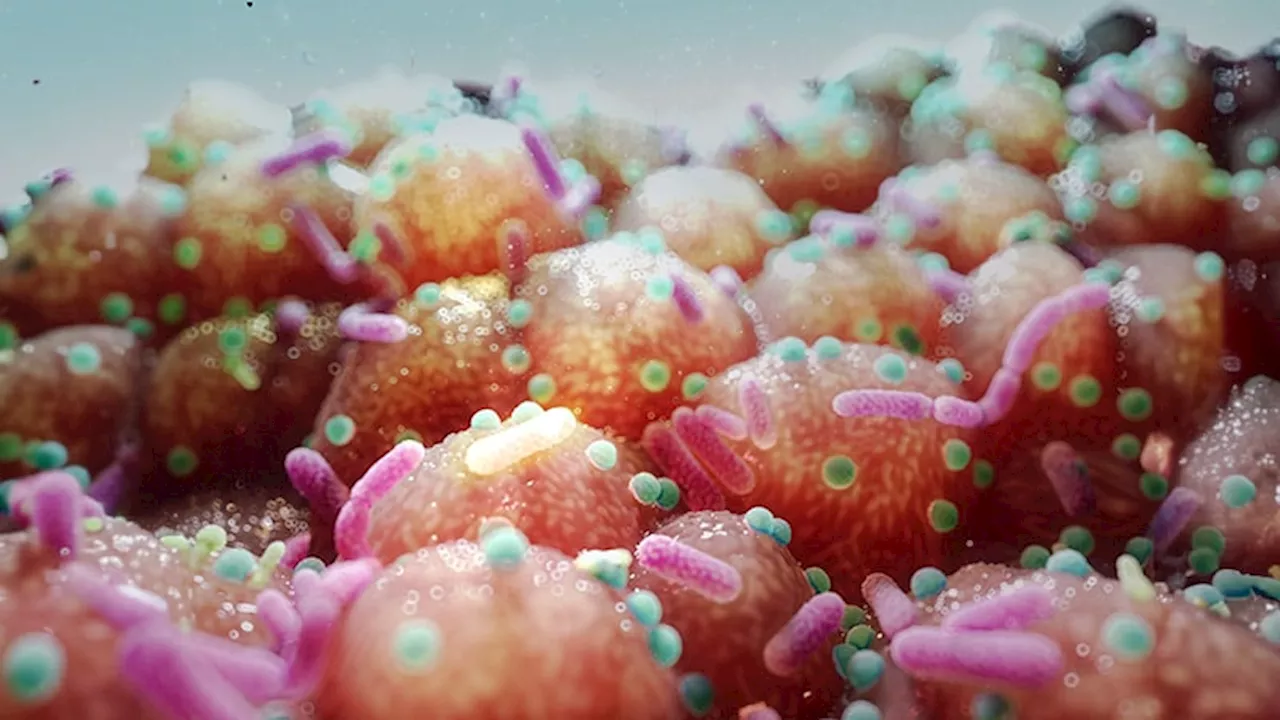A new study suggests that promoting specific bacteria in the mouth may help delay cognitive decline.
A new study from the University of Exeter in the UK suggests that promoting specific bacteria in the mouth could potentially delay cognitive decline . Researchers found that individuals with mild cognitive impairment (MCI) who hosted a relatively high abundance of bacteria from the genus Neisseria-Haemophilus tended to have better cognitive function.
The study, led by molecular biologist Joanna L'Heureux and her colleagues, focused on the link between oral microbiome composition and cognitive health. They discovered that of 33 participants with MCI who were genetically predisposed to Alzheimer's disease, many had oral microbiomes dominated by the Neisseria-Haemophilus genus. Interestingly, this dominance was a predictor for an elevated genetic risk for dementia, suggesting it could be used as an early marker of disease risk.Scientists suspect that certain bacteria in the mouth, like those in the Neisseria-Haemophilus genus, may produce nitric oxide. This signaling molecule is thought to play a protective role in the central nervous system by boosting neural plasticity and improving the efficiency and power of neural messages. Nitric oxide may also reduce neural inflammation. The authors of the study believe that by influencing the composition of the oral microbiome, it might be possible to influence nitric oxide availability and, consequently, brain health. However, further research is needed to fully understand the complex interplay between oral bacteria, the production of signaling molecules, and cognitive function
Oral Microbiome Cognitive Decline Dementia Alzheimer's Disease Nitric Oxide
United States Latest News, United States Headlines
Similar News:You can also read news stories similar to this one that we have collected from other news sources.
 Oral Microbiome Dysbiosis: Biomarker for Upper GI Disorders?Changes in oral microbiota were associated with precancerous lesions and disorders of the upper gastrointestinal tract in a population-based study.
Oral Microbiome Dysbiosis: Biomarker for Upper GI Disorders?Changes in oral microbiota were associated with precancerous lesions and disorders of the upper gastrointestinal tract in a population-based study.
Read more »
 3 Surprising Things That Can Affect Your Brain Health, From a NeurologistThis article explores three unexpected factors that can significantly impact brain health, according to neurologist Dale Bredesen. These include the oral microbiome, vitamin D levels, and sauna use. The piece highlights the importance of maintaining a healthy oral microbiome, ensuring adequate vitamin D intake, and incorporating regular sauna sessions into your routine for optimal cognitive function.
3 Surprising Things That Can Affect Your Brain Health, From a NeurologistThis article explores three unexpected factors that can significantly impact brain health, according to neurologist Dale Bredesen. These include the oral microbiome, vitamin D levels, and sauna use. The piece highlights the importance of maintaining a healthy oral microbiome, ensuring adequate vitamin D intake, and incorporating regular sauna sessions into your routine for optimal cognitive function.
Read more »
 Hemp Microbiome Study Reveals Potential for Sustainable Farming PracticesA University of Houston study exploring the microbiome of hemp plants has uncovered the potential for using beneficial microbes to enhance CBD production and improve fiber quality. The research, published in a scientific journal, analyzed the diverse communities of microorganisms living in and around hemp plants, finding significant differences between those grown for CBD and fiber. This discovery could pave the way for more sustainable farming methods that rely on natural processes to boost plant growth.
Hemp Microbiome Study Reveals Potential for Sustainable Farming PracticesA University of Houston study exploring the microbiome of hemp plants has uncovered the potential for using beneficial microbes to enhance CBD production and improve fiber quality. The research, published in a scientific journal, analyzed the diverse communities of microorganisms living in and around hemp plants, finding significant differences between those grown for CBD and fiber. This discovery could pave the way for more sustainable farming methods that rely on natural processes to boost plant growth.
Read more »
 Fish Brains Harbor Bacteria, Fueling Debate About Human MicrobiomeA new study finds evidence of bacteria thriving in the brains of fish, raising questions about whether a similar microbiome exists in humans.
Fish Brains Harbor Bacteria, Fueling Debate About Human MicrobiomeA new study finds evidence of bacteria thriving in the brains of fish, raising questions about whether a similar microbiome exists in humans.
Read more »
 Microbiome Testing Not Ready for Clinical Practice, Experts SayAn international panel of experts concluded that microbiota analysis is not yet ready for clinical use in diagnosing diseases or guiding treatment. Despite establishing criteria and standards for microbiome testing, the panel emphasized the lack of strong evidence supporting its benefits in managing gastrointestinal or other disorders.
Microbiome Testing Not Ready for Clinical Practice, Experts SayAn international panel of experts concluded that microbiota analysis is not yet ready for clinical use in diagnosing diseases or guiding treatment. Despite establishing criteria and standards for microbiome testing, the panel emphasized the lack of strong evidence supporting its benefits in managing gastrointestinal or other disorders.
Read more »
 Scalp Microbiome Differences Found in Women with Central Centrifugal Cicatricial AlopeciaA new study found significant differences in the scalp microbiome composition of Black women with central centrifugal cicatricial alopecia (CCCA) compared to healthy controls. The study, which analyzed scalp samples from four anatomical sites, revealed higher levels of in the vertex scalp of women with CCCA. While the exact role of this difference in the development of CCCA is unclear, the findings contribute to the growing understanding of the scalp microbiome and its potential connection to this type of hair loss.
Scalp Microbiome Differences Found in Women with Central Centrifugal Cicatricial AlopeciaA new study found significant differences in the scalp microbiome composition of Black women with central centrifugal cicatricial alopecia (CCCA) compared to healthy controls. The study, which analyzed scalp samples from four anatomical sites, revealed higher levels of in the vertex scalp of women with CCCA. While the exact role of this difference in the development of CCCA is unclear, the findings contribute to the growing understanding of the scalp microbiome and its potential connection to this type of hair loss.
Read more »
